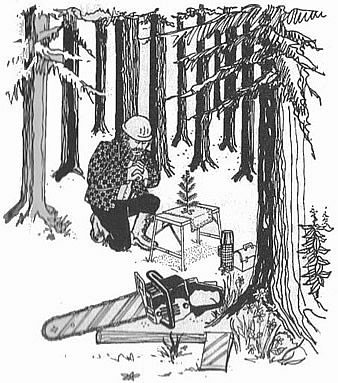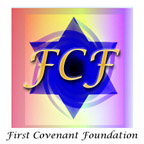Absolutely the weirdest-sounding and the seemingly most primitive of all the Seven Noahide Commandments is the one called “Torn Limb.” In Torah Hebrew, it’s “eyver min ha’chai”: limb torn from a living animal.
Scripture sets out this Commandment right near the start of the story of our species. Noah and his family emerge from the Ark, their life-boat, back on dry land after the Flood; God makes His covenant with them and all the Earth.
HaShem, Master of the Universe, grants men and women complete dominion over Earth. And here the Torah simply sweeps away the taboos of paganism. “Every living thing that moves shall be food for you: even as the green herb, I have given you everything” (Genesis 9:3).

People have no obligation to ask permission from the
natural world's creatures and things before using them.
This awesome gift is no license for depravity. Freedom imposes responsibilities. The one thing excluded from “everything” – the menu items available to humans - is living flesh: “flesh with the life thereof” (Genesis 9:4).
Christianity’s Paul (Saint Paul) asks, “Is it for oxen that God cares?” (1 Corinthians 9:9). The implied answer is “no.” Yet with this Commandment, the King of the Universe communicates that He Himself does indeed care about the animals.
This world is real – contrary to the teachings of so many religions and philosophies - and the pain of animals is real, BECAUSE God cares about them.
This Commandment teaches, at a minimum:
1) Don’t be insensitive to the suffering of animals.
2) Don’t be insensitive to the nature of the food you eat.
3) It is pathological – it is depraved - and contrary to the Law of civilization to be so insensitive to both of these two principles together as to violate “Torn limb.”
Violating “Torn limb” is literally monstrous. The chief defining characteristic of monsters is that they eat their victims alive.

Let's please get this clear. Contrary to many philosophies, animals do not have rights. Only people, possessed of free will, can choose to exercise a right or accept an obligation. So we are not required to ask the natural world’s permission before we use any part of it. Yet we have obligations to God. God created us in His “image” (Genesis 1:26, 1:27, 5:1) and gave us the extraordinary gift of dominion over Earth. He has made us, in fact, His planetary stewards, answerable only to Him. So He requires us to act better than mere animals - and better than monsters!
Could God really care about the welfare of animals? Could He possibly care about what people put into their stomachs, about how and what we eat? Optimally, this Commandment connects us to a vast body of Revealed Law, of black-letter Scripture and clear Torah, regarding kindly treatment of animals, and, certainly, the Hebrew dietary laws.
There’s so much more to say about this Commandment – the “greenest” of all the Seven Noahide laws – but we don’t have the space to say it here. Our chapter, “The Seventh Commandment; Dietary Laws,” in Rainbow Covenant, Book Two, Second chapter, treats the subject much more extensively. We hope you’ll look there.


